Films with theme "Documentary films about racism", sorted by production date

Red Shirley (2010)
, 28minutesDirected by Lou Reed
Origin USA
Genres Documentary
Themes Films about racism, Films about religion, Documentary films about racism, Documentary films about law, Documentary films about war, Documentary films about historical events, Documentary films about religion, Political films, Films about Jews and Judaism, Documentary films about World War II
Actors Lou Reed

Themes Films set in Africa, Films about racism, Documentary films about racism, Documentary films about law, Documentary films about politics, Political films

In My Genes (2009)
, 1h18Directed by Lupita Nyong’o
Origin Kenya
Genres Drama, Documentary
Themes Films about racism, Documentary films about racism
How does one live as a pale person in a dominantly black society? What does one feel being one of the most visible persons and, probably, one of the most ignored? Agnes, an albino woman in Kenya, feels it daily. Ever since she was born, she has had to deal with the prejudices that surround albinos. In My Genes bears witness to the lives of eight people who suffer discrimination due to a simple genetic anomaly.
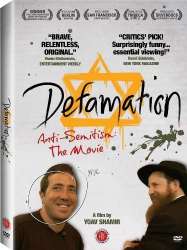
Defamation (2009)
, 1h31Origin Israel
Genres Documentary
Themes Films about racism, Films about religion, Documentary films about racism, Documentary films about law, Documentary films about religion, Films about Jews and Judaism
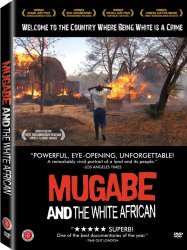
Mugabe and the White African (2009)
, 1h30Origin United-kingdom
Genres Documentary
Themes Films set in Africa, Environmental films, Films about racism, Documentary films about business, Documentary films about racism, Documentary films about law, Documentary films about environmental issues, Documentaire sur une personnalité, Documentary films about politics, Political films
En 2008, Mike Campbell – l’un des derniers fermiers blancs au Zimbabwe face au violent programme de réforme agraire – prend le risque sans précédent d’attaquer le Président Robert Mugabe devant le tribunal du SADC (Communauté de Développement Sud-Africain) afin de défendre ses droits. Son exploitation agricole emploie plus de 500 travailleurs et abrite également leurs familles. Mike Campbell accuse Mugabe et son gouvernement de discrimination raciale et de violation des Droits de l’Homme. Embarqués dans un procès hors du commun, Mike et sa famille vont devoir faire face à la violence et à la cruauté du régime du dictateur. Ce documentaire retrace leur combat.
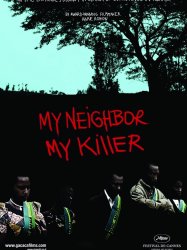
My Neighbor, My Killer (2009)
, 1h20Directed by Anne Aghion
Origin France
Genres Documentary
Themes Films set in Africa, Films about racism, Documentary films about racism, Documentary films about law, Documentary films about war, Documentary films about historical events, Documentaire sur une personnalité, Documentary films about politics, Political films
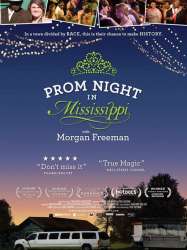
Prom Night in Mississippi (2009)
, 1h30Origin USA
Genres Documentary
Themes Films about racism, Documentary films about racism, Documentary films about law, Documentaire sur une personnalité
Actors Morgan Freeman
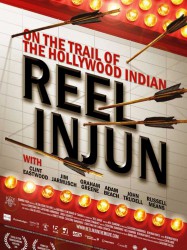
Reel Injun (2009)
Origin Canada
Genres Documentary, Western
Themes Films about racism, Documentary films about business, Documentary films about the film industry, Documentary films about racism, Documentary films about law, Documentaire sur une personnalité
Actors Adam Beach, Clint Eastwood, Charlie Hill, Sacheen Littlefeather, Zacharias Kunuk, Jim Jarmusch
Le réalisateur Neil Diamond, lui-même Indien Cree, donne la parole à des gens de cinéma connus pour leur regard acéré sur l'image et la place des Amérindiens dans le western américain : les cinéastes Clint Eastwood, Zacharias Kunuk et Jim Jarmusch, les acteurs Wes Studi et Graham Greene.
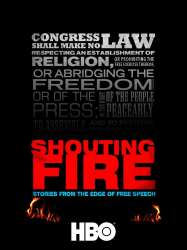 , 1h14
, 1h14Directed by Liz Garbus
Origin USA
Genres Documentary
Themes Politique, Films about racism, Documentary films about racism, Documentary films about law, Documentary films about historical events, Documentaire sur une personnalité, Documentary films about politics, Political films
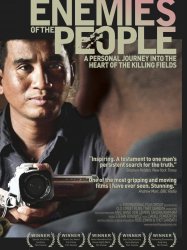
Enemies of the People (2009)
, 1h34Genres Documentary
Themes Films about racism, Documentary films about racism, Documentary films about law, Documentary films about war, Documentary films about historical events, Documentaire sur une personnalité
An estimated 1.7 million Cambodians died during the rule of the Khmer Rouge, a radical communist movement led by Pol Pot. Among the victims were Thet Sambath’s mother, father and brother. He says he did not understand why the Khmer Rouge unleashed such violence on their compatriots. In 1999, he decided to seek confessions and explanations from former Khmer Rouge officials at all levels. None had previously admitted any killings.
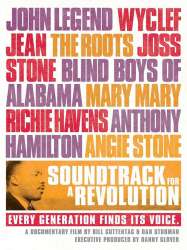
Soundtrack for a Revolution (2009)
, 1h22Directed by Bill Guttentag
Origin USA
Genres Documentary
Themes Films about music and musicians, Films about racism, Documentary films about racism, Documentary films about law, Documentary films about historical events, Documentary films about music and musicians, Documentaire sur une personnalité, Documentary films about politics, Musical films, Political films
Actors John Legend, Wyclef Jean, Joss Stone, Angie Stone, Harry Belafonte
L'histoire du mouvement pour les droits civiques aux États-Unis a toujours été rythmé par de la musique, des mélodies salvatrices, des chants pour la liberté. A travers les différents groupes musicaux de l'époque, "Soundtrack for a Revolution" retrace les combats des esclaves noirs de l'époque.
 , 43minutes
, 43minutesOrigin Canada
Genres Documentary
Themes Films about racism, Films about religion, Documentary films about racism, Documentary films about law, Documentary films about war, Documentary films about historical events, Documentaire sur une personnalité, Documentary films about religion, Political films, Films about Jews and Judaism, Documentary films about World War II
A search, a journey, a life’s dream fulfilled. Seventy-seven-year-old Holocaust survivor Alice Zuckerman never gave up hope she would find her family, lost after the Second World War. When scribbled notes on torn paper reveal clues to her past, Alice and her family reunite. Alice takes us on a moving journey through old Eastern Europe, a world that seemingly disappeared through Nazism and communism. Yet the world of Alice’s childhood remains vital in the hearts of the people she meets along the way.

Origin USA
Genres Documentary
Themes Films set in Africa, Films about racism, Documentary films about racism, Documentary films about law, Documentaire sur une personnalité, Documentary films about politics, Political films
In the 1950s South Africans realized that their freedom struggle had to be built in four arenas of action: mass action, underground organization, armed struggle, and international mobilization. Have You Heard From Johannesburg takes viewers inside that last arena, the movement to mobilize worldwide citizen action to isolate the apartheid regime. Inspired by the courage and suffering of South Africa’s people as they fought back against the violence and oppression of racism, foreign solidarity groups, in cooperation with exiled South Africans, took up the anti-apartheid cause. Working against heavy odds, in a climate of apathy or even support for the governments of Hendrik Verwoerd, John Vorster and P.W. Botha, campaigners challenged their governments and powerful corporations in the West to face up to the immorality of their collaboration with apartheid.
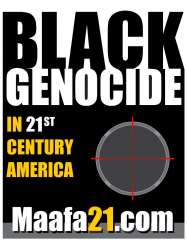
Genres Documentary
Themes Pregnancy films, Films about racism, Films about sexuality, Documentary films about racism, Documentary films about law, Documentaire sur une personnalité, Documentary films about health care
The title comes from the Swahili term "maafa," which means tragedy or disaster and is used to describe the centuries of global oppression of African people during slavery, apartheid and colonial rule, while the number "21" refers to an alleged maafa in the 21st century (though beginning in the 19th), which the film says is the disproportionately high rate of abortion among African Americans. The film states that abortion has reduced the black population in the United States by 25 percent. It discusses some of Planned Parenthood's origins (formerly the American Birth Control League), attributing to it a "150-year-old goal of exterminating the black population." It attacks Margaret Sanger, along with other birth control advocates, as a racist eugenicist. The film features conservative African Americans who are associated with the Tea Party movement, including politician Stephen Broden, and Martin Luther King, Jr.'s niece Alveda King, who claims that Sanger targeted black people.

Sea Point Days (2008)
, 1h36Origin South africa
Genres Documentary
Themes Films set in Africa, Films about racism, Documentary films about racism, Documentary films about law, Documentaire sur une personnalité, Documentary films about politics, Documentary films about cities, Political films
Alongside the southernmost urban centre in Africa, separating city from ocean, lays a very special strip of land. Set against the beautiful backdrop of the Atlantic Ocean on one side and Signal Hill on the other, the Sea Point Promenade – and the public swimming pools in its centre – forms a space unlike any in Cape Town. Once a bastion of Apartheid exclusivity, it is nowadays unique in its apparently easy mix of age, race, gender, religion, wealth status and sexual orientation. Somehow this space has become one where all South Africans feel they have a right to exist, and where the possibility of happiness in a divided world doesn't seem unfeasible. But what is the reality of those coming here? How do people see their past, their present in this space and their future in this country?
 Connection
Connection